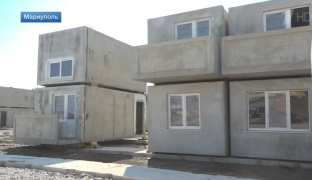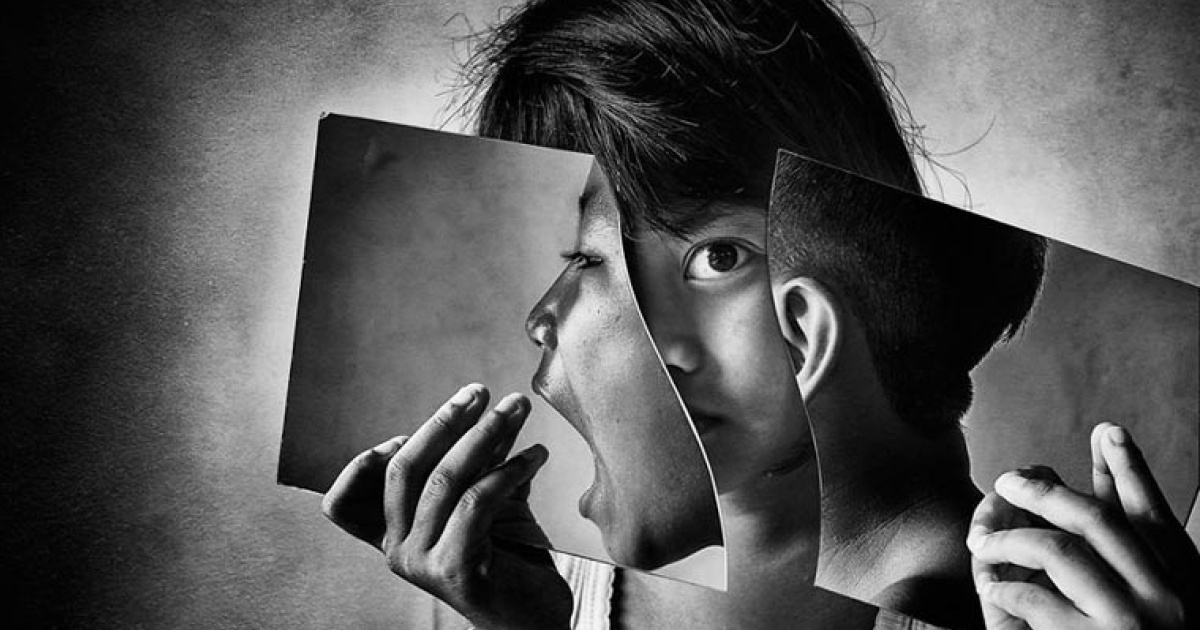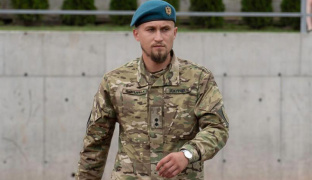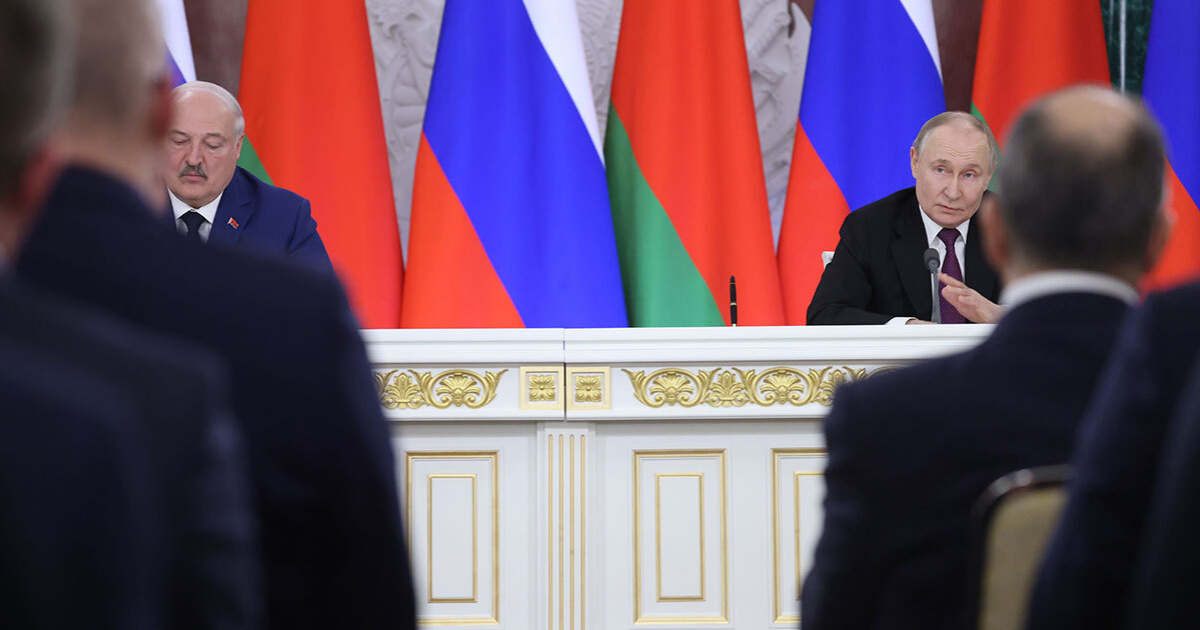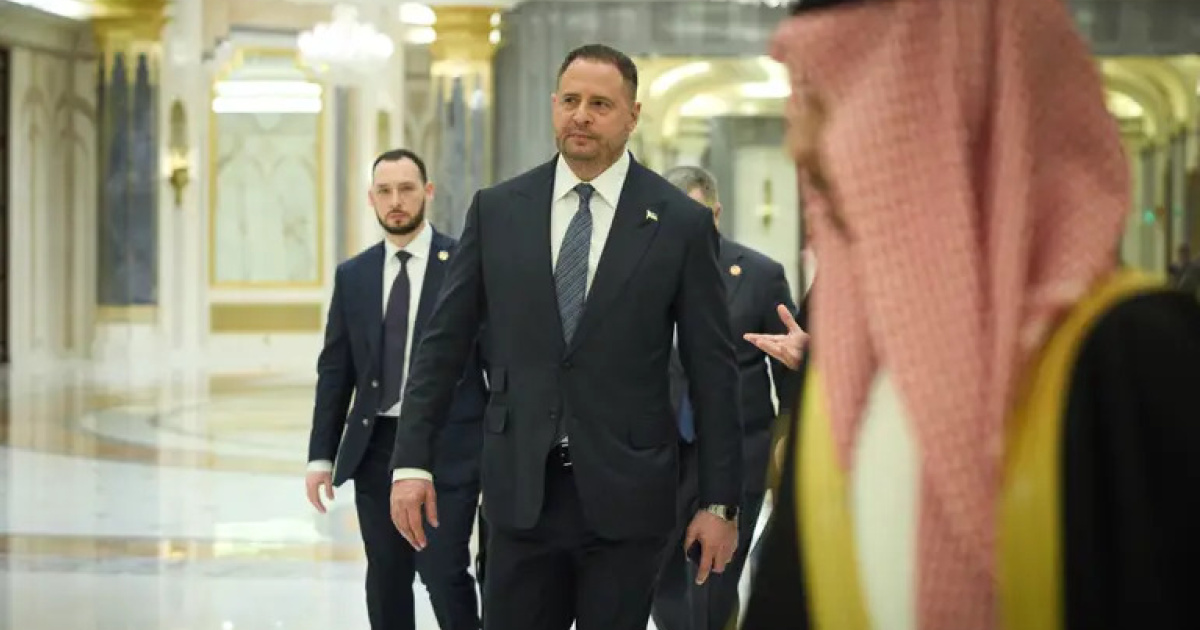A new escalation occurred in the territorial conflict between Armenia and Azerbaijan in mid-July.
The previous confrontation of this kind, with a significant number of deaths and destruction of civilian infrastructure, happened in April 2016. Meanwhile, skirmishes in different parts of the Armenian-Azerbaijani border or along the demarcation line on the territory of Azerbaijan occupied by the Armenian armed forces took place and are happening almost daily. The thirty-year-old Karabakh conflict between the two post-Soviet states never became frozen.
No one can name the reason for the new clashes for sure: each side insists on its own version. However, the legend of a short-term lessening of tensions is still fresh, when in 2019, Azerbaijan and Armenia, the borders of which are closed for any kind of peaceful interaction between the two peoples, exchanged delegations of journalists for the first time in many years. The bottom line is neither a complete change of power in democratic Armenia, nor the recent nominal reset of parliament and government in authoritarian Azerbaijan have led to shifts in the Karabakh agenda.
Ukraine was involved in the new confrontation. A misfortune similar to Azerbaijan's - Russia's annexation of the Crimea and the war it instigated and supported in eastern Ukraine - brought the official positions of Kyiv and Baku closer together. After the resumption of clashes on the Armenian-Azerbaijani border, which was not demarcated after the collapse of the USSR, the Ministry of Foreign Affairs of Ukraine issued a statement in which, in particular, it noted Ukraine's support for the territorial integrity of Azerbaijan.
The position that was seemingly a secret for no one caused a rush of indignation in Yerevan this time. Representatives of the youth branch of the far-right Dashnaktsutyun party came to the Ukrainian embassy in the Armenian capital with a protest demonstration, and poured borsch on its facade. The ambassador had to listen to the condemning clatter of the Armenian MFA.
The public in Kyiv, in turn, discovered that Armenia consistently vote in the interests of Russia and against the interests of Ukraine in the UN and PACE. Here it is worth explaining that although in the early 1990s, the Armenian side managed to recapture Nagorno-Karabakh and capture seven more regions of Azerbaijan, none of the sides emerged victorious from this war. From the very moment of the end of full-scale hostilities between the two countries in 1994, Russia, which retained its military base in the Armenian Gyumri, remains the only valid guarantor of their non-renewal.
The governments of both countries are playing controversial diplomatic games with Moscow. Immigrants from both countries, mostly peacefully, live and do business in the Russian Federation in huge diasporas. Both Yerevan and Baku buy weapons from Russia for the war against each other. The general public both in Armenia and Azerbaijan considers Moscow to be the culprit of the Karabakh conflict and all its consequences. Both countries are stalemated by this schizophrenic reality.
Armenian Prime Minister Nikol Pashinyan, who came to power as a result of the 2018 non-violent revolution, previously criticized Yerevan's position in relations with Moscow and advocated a compromise resolution of the Karabakh conflict. Today, Pashinyan's foreign policy is not so different from that of his predecessors, - and this is hardly Pashinyan's fault.
We talked about "who is to blame and what to do" with Alexander Iskandaryan, director of the Caucasus Institute and, perhaps, the most famous political analyst in the South Caucasus, on the anniversary of the events of spring 2018 in Armenia. Considering that the qualitative changes in Armenia turned out to be not as radical and obvious as many expected, can we still call what happened in 2018 a revolution? That was my first question.

Alexander Iskandaryan. Photo from the website of News-Armenia international information agency
Alexander Iskandaryan: Why are there splits whether color revolutions are revolutions? Classic revolutions around the end of the 18th century and the second half of the 20th century relied on the legitimacy of the revolution itself. Vladimir Lenin was hardly interested in how the tsar or Alexander Kerensky took his legitimacy. Recent revolutions take the legitimacy from the law that was passed by the people they overthrow.
We have restored a one-and-a-half-party system. This is when one party in parliament has the ability to make decisions. This differs from the one-party system in that there are other parties in parliament, they have the opportunity to speak out, but they have no opportunity to influence decision-making. They either condemn membership in the Eurasian Union and advocate breaching in relations with Russia, or maintain ties with Russia, and so on. This is a common picture in Armenia. Nikol Pashinyan's block My Step is in the center.
The political elites are new. The business elites have little choice, they need to go over to the side of the "rebellious people".
OstroV: What did you mean when you told me at the beginning of the conversation that the majority of Pashinyan is good for Pashinyan, but not for Armenia?
- Armenia is a country with a parliamentary system. And parliamentary systems work well within a developed party system. There are no political parties in Armenia. Those structures that are called this way are not such in fact.
My Step was thrown together. The revolution was made by quite a small circle of people who were around the revolution leaders. Almost all of these people can be called politicians, but they participated in street politics, which is extremely peculiar to Armenian political life. They never fit into any hierarchy, they never built any systems. Suddenly this group came to power in the parliamentary system. Now you need to create political parties ad hoc, and political parties are not created by decree.
The Republican Party, to put it mildly, is in crisis, because it was a party of power typical of the post-Soviet states, merged with the state apparatus. After the state apparatus was taken away, it was unable to gain even five percent. Because this party was not a party, it was a trade union of officials and their affiliated businesses and a social ladder for young people who wanted to pursue a political career.
The Republican Party has ceased to be a trade union of officials, because officials should now belong to a different political force. Businessmen joined the Republican Party not because they agreed with its ideas, but because it was the party of power. Young people can no longer pursue a career through it.
So, there is no real opposition. There is no ruling party either. People do not know those who sit in the parliament, they voted for Nikol Pashinyan. The super-presidential system has become super-premier.
There are not many changes in the power structure, because there are no those who are called watch dogs. There is no civil society, because most of the civil society has gone to the parliament. There are no opposition parties. And the main supporting structure of the new system, the My Step block, is not consolidated. The Republican Party had a consolidation mechanism, albeit a corrupt one. Now, they say, there will be no corruption. What will be the consolidation mechanism? Ideology? There is no ideology. Hierarchy? There is no hierarchy.
Accordingly, new mechanisms have yet to be formed within the framework of the system that is being built. But it is also necessary to rule the country!
- What system is being built in Armenia?
- The super-premier one. This is a worldwide process. We see people's fatigue with classical politicians in many places, including in your country. Trump, Orban, Macron, Kurz and so on. Another crisis of democratic governance is taking place. Scientists are already beginning to come up with a name for this phenomenon. It is sometimes called post-populism. The leader declares that he will directly execute what the square says. And the square is not quite an institutionalized entity. A problem with the institutionalization of power and administrative mechanisms appears in the intervals between elections.
Pashinyan also tends to say that he addresses the people directly. Why is this happening? Because the Armenian authorities got used to live in conditions of very low legitimacy from 1992 to April 2018. I call this apathy management. They learned to buy and sell, relying on the business elites, to create some kind of consensus between them. They understood that they were not very popular, but they got used to it and took it as the norm. However, this killed them: they thought that this could last forever. Well, no.
These new ones are used to live in conditions of very high legitimacy. People's love and euphoria are quite cool. This is their only tool - one that works brilliantly. High popularity in politics is good. If you do something with its help. For example, carry out reforms.
If high popularity is used for high popularity, the result is a kind of prolongation of legitimacy. But sooner or later, popularity will start to fall anyway, this is inevitable. In order to replace this tool, it is necessary to create institutional forms of legitimacy: political parties, civil society, administrative institutions, mass media and laws.
This is a systematic work. It needs people, and people cannot be recruited only on the basis of loyalty. Professionals are people who have worked in power, and we had "republicans" in power for 20 years. Pashinyan understands this. Now those who have protested in the streets all their lives and those against whom they protested should work in the sameoffices. They should work together.
The normal way to come to power is when a person graduates from university, becomes a junior assistant to a junior head of a department, grows up the career ladder for 30 or 40 years and begins to make decisions by the age of 60. This has its own dangers: loss of ties with society, creation of a closed caste of officials and quite a poor work of social elevators. A revolution, when elites change dramatically, creates other problems. It leads to the fast work of social elevators, appearance of nonprofessionals and very heterogeneous people at the top of the career ladder. All this needs to be stuck together into something.
- That is, you have not seen any attempts to stick it together yet.
- At the moment, I see a rather superficial vision of this kind of things. For example, they say: "Fight against corruption". The fight against corruption and the fight against corrupt officials are two different things. Fighting corrupt officials is useless without fighting corruption: new ones will appear. Corruption is a systemic phenomenon. It is stemmed from the legislative area, police, culture and distribution of money. What is happening in Armenia and presented as a fight against corrupt officials is called selective justice. That is, this is a legal prosecution of corrupt officials, but not all, but those associated with the previous government.
- Are there those who are associated with the current government?
- I am not a judge. But one of the richest men in Armenia Gagik Tsarukyan, head of the Prosperous Armenia party, provided the supporting structure for Pashinyan's revolution. Those people who are being persecuted are mainly representatives of the previous government, up to the relatives of former high-ranking officials. Pashinyan says about the others that they are not corrupt officials now, but big businessmen. In any case, this would not work for purposes of the fight against corruption.
Among other things, this is a question of goal-setting. Apparently, there is not a lot of corruption in North Korea, and in South Korea, several presidents have been tried for corruption. Do we want to build North Korea, or South Korea?
- Is it necessary to build Korea?
- Is repression a way to change something, or not? It seems to me that it is not. The fight against corruption is just one example. But it will pass. People will change. The revolution devours its children, this is the law.
- How long would it last in your opinion?
- It is hard to say. There was about a year of euphoria in the case of Moldova, Kyrgyzstan and Ukraine. In Georgia - more, but it was fueled by extremely large money that came from the West. We will not have that kind of money.
There is no collapse yet, but a fall is taking place. It will be hard by the fall of 2020. I may be wrong about the dates: the pace that I see now will not necessarily extrapolate to the future. You need to pay attention to the time of the year when there is/there is no heating and people need/do not need to pay for it, on the relationship with Russia in the field of security, on personnel policy and so on. But my mistake in the parameters is not important, this moment will come anyway.
- Can we expect the return of the previous power in this case?
- System or people?
- People.
- I do not think so.
- And system?
- I do not think the system has changed much. A new system is being built. What has changed is the elections.
- Have they become fair?
- I do not understand what "electoral fairness" means.
- Many people here told me that there was no electoral fairness in Armenia until 2018.
- Is distribution of money to voters an electoral fairness? And the promise to build a road in the village, if elected?
Everything is much more complicated. In any case, not a single party protested against the results of the last pre-revolutionary elections. Pashinyan, realizing at that time that he would not gain even five percent with his Civil Contract party, entered into an alliance with two other parties, barely overcame the threshold, entered the parliament and began to work there.
What does this mean? That there were no falsifications in the form of mass spread of false stories or manipulation at the level of the Central Election Commission, or they could not affect the result. There was also no purchase of votes from the side of the party that remained in power. Why? Because there was confidence in victory.
No elections were accepted by the losing side. Except for the latter. But what matters is not how the situation has changed in reality, but the attitude of the public towards it. The legitimacy of all government institutions was in question before the coming of Pashinyan.
- At the last presidential election, Ukraine faced a situation when, by and large, there was no one to vote for. Is the same situation possible in Armenia, if Pashinyan's rating falls?
- There was a protest vote in Ukraine. I do not know what will happen in Armenia in five years. But the drop in support for Pashinyan does not mean an increase in support for the "republicans". Discontent with Pashinyan has not yet turned into "but it used to be better before".
- What is happening now in relations between Armenia and Russia?
- The Ukrainian cannot but ask this question.
Nothing new happens. I understand that there should be general discontent with Armenia in Moscow, because Putin is not the kind of person who likes this kind of coming to power like Pashinyan's. But Putin and the Russian elites in general have always been able to interact with completely different types of authorities in different countries.
The Eurasian Economic Union is called in Ukraine the "club of dictators". But this is not quite correct. There have already been two revolutions in Kyrgyzstan. Nazarbayev was a far cry from Lukashenko. Happened what happened, and Armenia was not kicked out of the EurAsEC for it. It is not true that Putin had excellent relations with Sarkissian, they were sometimes disgusting, just like Putin had with Lukashenko or Nazarbayev.
That is, there are problems, but both sides have a desire to overcome them. They are not easy to overcome. These are serious problems, but rather of a tactical nature. Strategically, I am sorry, but I will have to tell you this… Ukraine without Crimea and Donbass is still Ukraine. What will my country be like, if Donbass come there?
In April 2008, Mikheil Saakashvili, the then President of Georgia, announced at the NATO summit in Bucharest that Georgia was going to become a NATO member. Exactly four months later, in early August of the same year, Russian tanks stopped 30 kilometers from his capital and are still standing there.
We are the only country in the South Caucasus that controls its territory. We are the only Eastern Partnership country that controls its territory, with the exception of Belarus. This is the result of Armenia's unwillingness to turn into a battlefield between East and West.
It does not depend on individuals. It is not about who thinks what. The rulers of independent Armenia, three presidents and the prime minister, - are quite different people. A complimentary policy was carried out by all without exception. Just because. Because Turkey is a NATO member. Because the borders on the right and left are closed. Because we are between Georgia and Iran. Because America has an extremely specific relationship with Iran, while Russia has a specific relationship with Georgia.
That is, no one will make sudden movements in order to please someone for sure. By the way, Ukraine understands this. Behaving differently? Thanks, we see the examples around. Being in a room with an elephant not paying attention to the elephant is bad for the health. And it does not matter, whether the elephant is good or evil.
- In this case, it is difficult to say that Armenia is not a battlefield between the West and the East. It is just a frozen battle.
- Yes, but it is better this way. Joining one of the parties is not the path that Armenia chooses.
- In my opinion, this is not a path at all, this is rather a dead end. Russia keeps your territorial conflict with Azerbaijan in limbo.
- Armenia is trying to play the role that Finland played after World War II and before the end of the Cold War, being a member of the Western community and at the same time, being dependent on the Soviet Union. This is the way of conducting politics, which is determined primarily by geography, but not only by it. This is a difficult political behavior, but I do not know which one would be better. It brings many problems. Nobody likes us: the West considers us pro-Russian and Russia - pro-Western. But it allows us to survive and develop in the situation in which we find ourselves.
- Does anyone at least outline the ways out of the Karabakh conflict in the future?
- I will not see the end, I am 60.
This is a zero-sum game. If an Azerbaijani won any percentage of something, I, an Armenian, lost the same percentage. If the Armenian won, the Azerbaijani lost. This is a dead end. The conflict cannot be resolved that way in principle, this is not a scenario problem, this is not an intellectual problem, this is a problem of the interests of two societies. Not of the authorities.
There are about fifty older conflicts in the world like the Karabakh one. How can they be settled? When you walk around Strasbourg, you can buy cigarettes in Germany and a lighter in France, without realizing that you have crossed the border. But if you predicted this to a resident of Strasbourg in the 18th century, he/she would twist his/her finger at his/her temple.
The problem is to move from the 18th century to the 21st. Karabakh is not Sinai, this is Jerusalem, for both peoples. This can be changed without coming up with a plan, but by changing the societies by rationalizing the discourses. One hundred percent of the discourses on Karabakh in Armenia and Azerbaijan are emotional, not rational.
This is about education, teaching and informing, this is about long and continuous work. And then we will come to a solution that we cannot imagine now, like a resident of Strasbourg of the 18th century could not imagine the European Union.
Many want Armenia to become a pro-European country. I do not want a pro-European country, I want a European country. I want a society that develops according to some of the rules that exist in the most advanced societies of our time.
A 180-year conflict has been settled in Strasbourg. Karabakh is a child's play in comparison.
Interviewed by Yulia Abibok, OstroV
